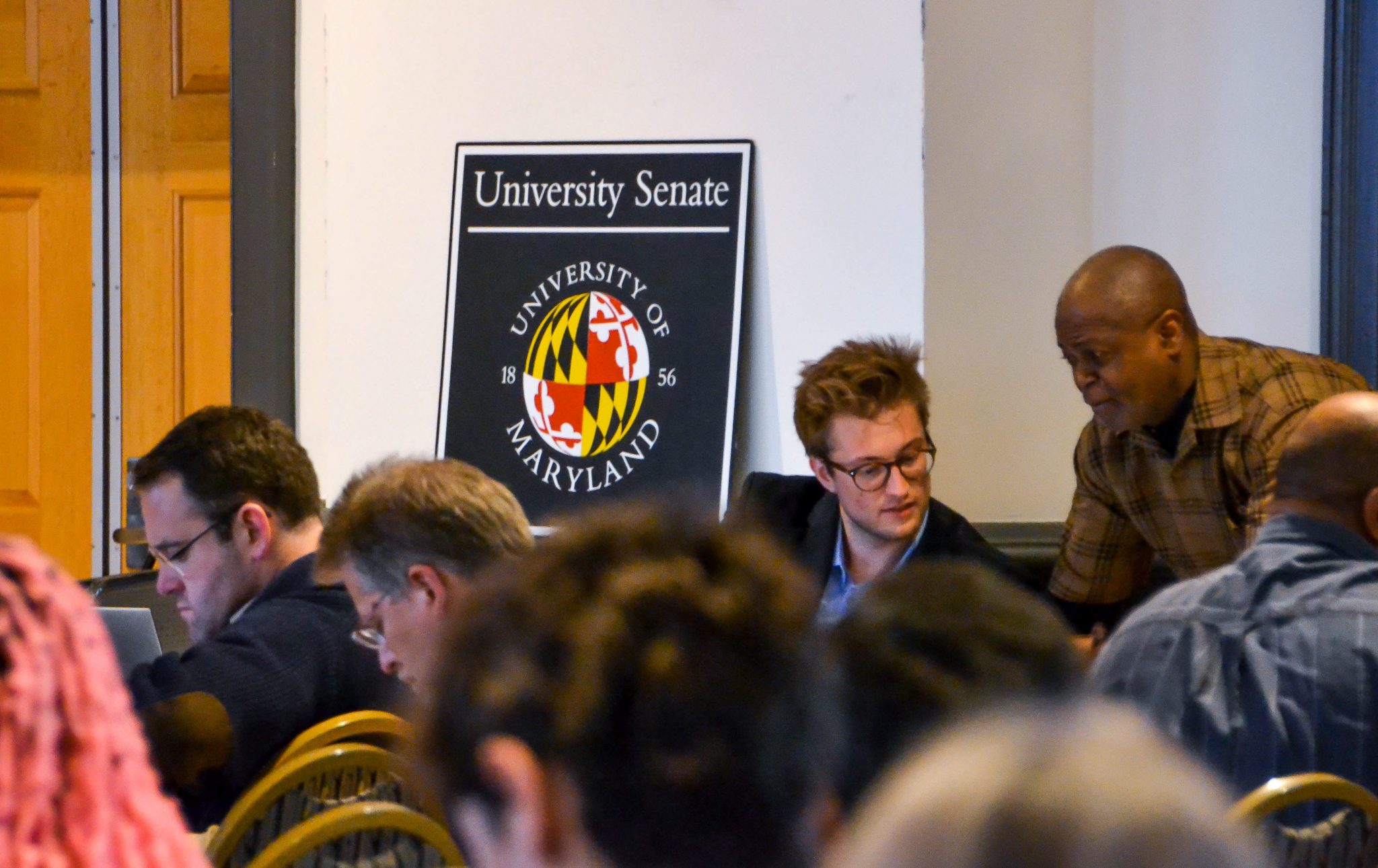The University of Maryland’s senate discussed revisions to the university’s final exam policy on Wednesday.
The University Senate is considering a policy to eliminate the final exam requirement for classes and mandate final exams take place during this university’s designated finals week. The policy would also potentially require any assignments due during finals week not count for more than 10 percent of the total grade for the class.
“Increasing the flexibility of final exam requirements would enable creative assessments of knowledge, increase learning outcomes and possibly decrease stress and pressure on both faculty and students,” Amy Karlsson, the chair of the senate’s academic procedures and standards committee, said in a presentation at the meeting.
Wednesday’s discussion came after a lengthy debate over the policy at the senate’s first meeting of the academic year in September, where senators expressed concerns about unclear wording in the policy.
The academic procedures and standards committee has since clarified language around what counts as the last week of classes. The revised proposal also includes flexibility for alternative final assessments, like projects and performances, to be scheduled during the last week of classes, Karlsson said.
[UMD President Darryll Pines hails possibilities of AI in State of the Campus]
The committee agreed only assignments worth 10 percent or less of a total course grade can be administered and due during the last week of classes. This doesn’t include final assignments or projects, which can still be worth more than 10 percent during the last week of classes — although the committee encouraged professors to have them due before then when paired with a final exam.
“The committee agreed that a 10 percent limit is a necessary addition to the policy to protect students from being overburdened while preparing for final exams,” Karlsson said.
Only 14 percent of senators said in a poll at the meeting that final exams should be required, while 86 percent said they should not be.
Senators were more divided on the 10 percent weight limit and whether final exams should be restricted to the university’s designated finals week.
Kim Coles, a senator representing tenured faculty in the arts and humanities college, asked Karlsson if final projects would be due during finals week under the proposed revision.
Karlsson said final projects should generally be due during the final exam period rather than while classes are still happening, but the policy could allow for exceptions.
Several faculty members expressed concerns that the revised policy would increase stress on students by making final exams and final projects due at the same time.
[University Senate approves undergraduate global health degree, debates exam policies]
To combat this, Karlsson suggested classes with both final projects and final exams schedule final project deadlines for the second-to-last week of classes to spread out students’ workloads.
But this would condense already tight schedules for some courses, some senators said.
“Chopping off one of those weeks … it really makes a difference when you’re scheduled to the teeth,” Katy Lawley, a senator representing professional track faculty in the information studies college, said.
Ross Salawitch, a senator representing the computer, mathematical and natural sciences college’s tenured faculty, said he is strongly in favor of dropping the final exam requirement, but has concerns about some of the other proposed changes.
“I haven’t been convinced the system is broken enough that we’re coming up with these changes,” Salawitch said. “I’m really worried about unintended consequences.”
The senate also voted Wednesday to change the classifications of three of its graduate programs — data science, bioinformatics and computational biology and applied machine learning — from professional studies programs to science programs. The switch allows international students on F1 visas to remain in the United States for longer after graduation.



